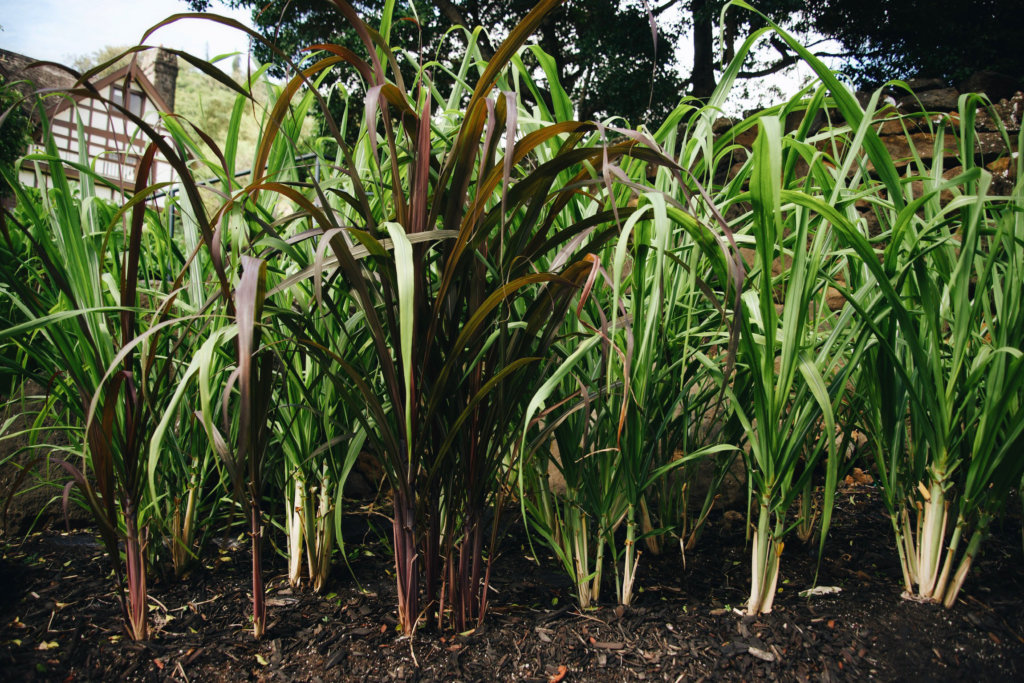From Field to Table: The Journey of Sugar and Cane
From Field to Table: The Journey of Sugar and Cane
Blog Article
Why Walking Stick Sugar Handling Chemicals Are Essential for Modern Sugar Refining
The duty of cane sugar handling chemicals in modern-day sugar refining can not be overstated, as they are important to improving both the effectiveness of removal and the overall high quality of the end product. Agents such as phosphoric acid and particular flocculants are utilized to remove impurities, leading to sugar that not only meets consumer assumptions yet likewise sticks to industry requirements. The ramifications of these chemicals prolong past quality, touching upon market dynamics and environmental considerations. sugar and cane. This increases crucial questions about the sustainability of such practices and their impact on the future of sugar manufacturing.
Role of Processing Chemicals
The efficacy of walking cane sugar handling hinges significantly on the tactical application of processing chemicals. These chemicals play a pivotal role in enhancing the efficiency and high quality of sugar removal and refining. From the preliminary stages of juice removal to the final purification actions, processing chemicals help with different vital operations.
In the removal stage, chemicals such as phosphoric acid and calcium hydroxide are used to maximize the explanation process, helping to get rid of contaminations and put on hold solids from the walking cane juice. This not only improves the yield but likewise guarantees the quality of the end product. In addition, representatives like flocculants help in the rapid settling of impurities, therefore enhancing the overall procedure.
Triggered carbon and ion exchange resins offer to remove color and smell, ensuring that the refined sugar fulfills customer quality criteria. Therefore, the meticulous choice and application of these chemicals are essential for achieving ideal outcomes in walking stick sugar handling.
Trick Kinds of Chemicals
Walking cane sugar handling relies upon a variety of essential chemicals that promote each phase of manufacturing. These chemicals play important functions in making clear, bleaching, and detoxifying the sugar removed from cane.
One primary category of chemicals consists of flocculants, such as polyacrylamide, which aid in the clarification process by promoting the aggregation and settling of pollutants. In addition, calcium hydroxide is often employed to neutralize acidity and aid in the elimination of non-sugar components.
Lightening representatives, such as activated carbon and sulfur dioxide, are used to decolorize the syrup, causing a clearer end product. These chemicals assist get rid of color compounds that may impact the sugar's appearance and marketability.
Moreover, phosphoric acid serves as a pH regulatory authority throughout the processing stages, making sure optimal problems for the enzymatic activities involved in sugar removal and filtration.
Other vital representatives include edta (ethylenediaminetetraacetic acid), which chelates steel ions that might catalyze unfavorable responses, and salt hydroxide, which aids in pH control throughout the refining process. Jointly, these chemicals improve efficiency and make sure a top quality walking cane sugar product.
Advantages for Sugar High Quality
Commonly ignored, using details handling chemicals considerably enhances the general quality of cane sugar. These chemicals play a crucial role in refining processes, ensuring that the end product satisfies rigid industry criteria for pureness and taste.

In addition, refining chemicals assist in accomplishing a constant granulation and appearance, which are important for customer acceptance. By managing the condensation procedure, these chemicals ensure that the sugar crystals form evenly, causing a much more attractive item that liquifies well in different applications.
Furthermore, the use of these chemicals can improve the service life of walking stick sugar by reducing moisture absorption and microbial development. Generally, the tactical application of handling chemicals is important for supplying top notch walking stick sugar that satisfies consumer assumptions and market demands.
Ecological Impact Considerations

Moreover, the energy-intensive nature of sugar refining, worsened by chemical use, usually leads to raised carbon exhausts. This adds to climate adjustment and elevates problems pertaining to the sustainability of present refining methods. In addition, the sourcing of these chemicals may entail practices that endanger biodiversity, such as monoculture farming, which decreases the strength of agricultural communities.

To mitigate these influences, sugar refiners are increasingly exploring sustainable alternatives and taking on best practices that decrease chemical use. Executing rigorous environmental management systems can help make sure that the refining process straightens with ecological standards and advertises biodiversity. Ultimately, a balanced technique that prioritizes both sugar high Extra resources quality and environmental stewardship is necessary for the long-lasting practicality of the sugar market.
Future Trends in Refining
As the sugar market grapples with the environmental difficulties related to conventional refining techniques, ingenious methods are arising to improve both efficiency and sustainability. One substantial pattern is the adoption of green chemistry concepts, which prioritize making use of safe, naturally degradable processing chemicals. This change not only decreases ecological impact however additionally addresses consumer need for cleaner production approaches.
Another promising growth is the application of advanced filtration technologies, such as membrane layer separation and adsorption procedures. These strategies improve the clarity and top quality of the sugar while lowering the quantity of wastewater created throughout refining. In addition, the assimilation of digital technologies, including IoT and AI, is changing functional efficiency by enabling real-time tracking and anticipating maintenance, hence lessening resource waste.
In addition, using spin-offs from sugar refining, such as bagasse and molasses, is getting traction. These materials can be exchanged biofuels or value-added items, adding to a circular economic situation within the market. Collectively, these patterns indicate a shift in the direction of more lasting practices that not just boost functional performance yet likewise line up with global sustainability goals, making certain the future practicality of article source sugar refining.
Conclusion
Cane sugar handling chemicals are crucial in modern-day sugar refining, significantly boosting the effectiveness and quality of sugar removal. The critical use of these chemicals not only improves the purity and taste of the final product but also makes certain constant crystallization and appearance. As the sector significantly focuses on sustainability, the fostering of environmentally-friendly handling agents is likely to shape future trends in refining, inevitably resulting in greater quality products and prolonged rack life for consumers.

Eventually, a well balanced method that focuses on both sugar quality and environmental stewardship is vital for the long-lasting viability of the sugar market.
Walking cane sugar handling chemicals are essential in modern-day sugar refining, considerably enhancing the effectiveness and quality of sugar extraction.
Report this page